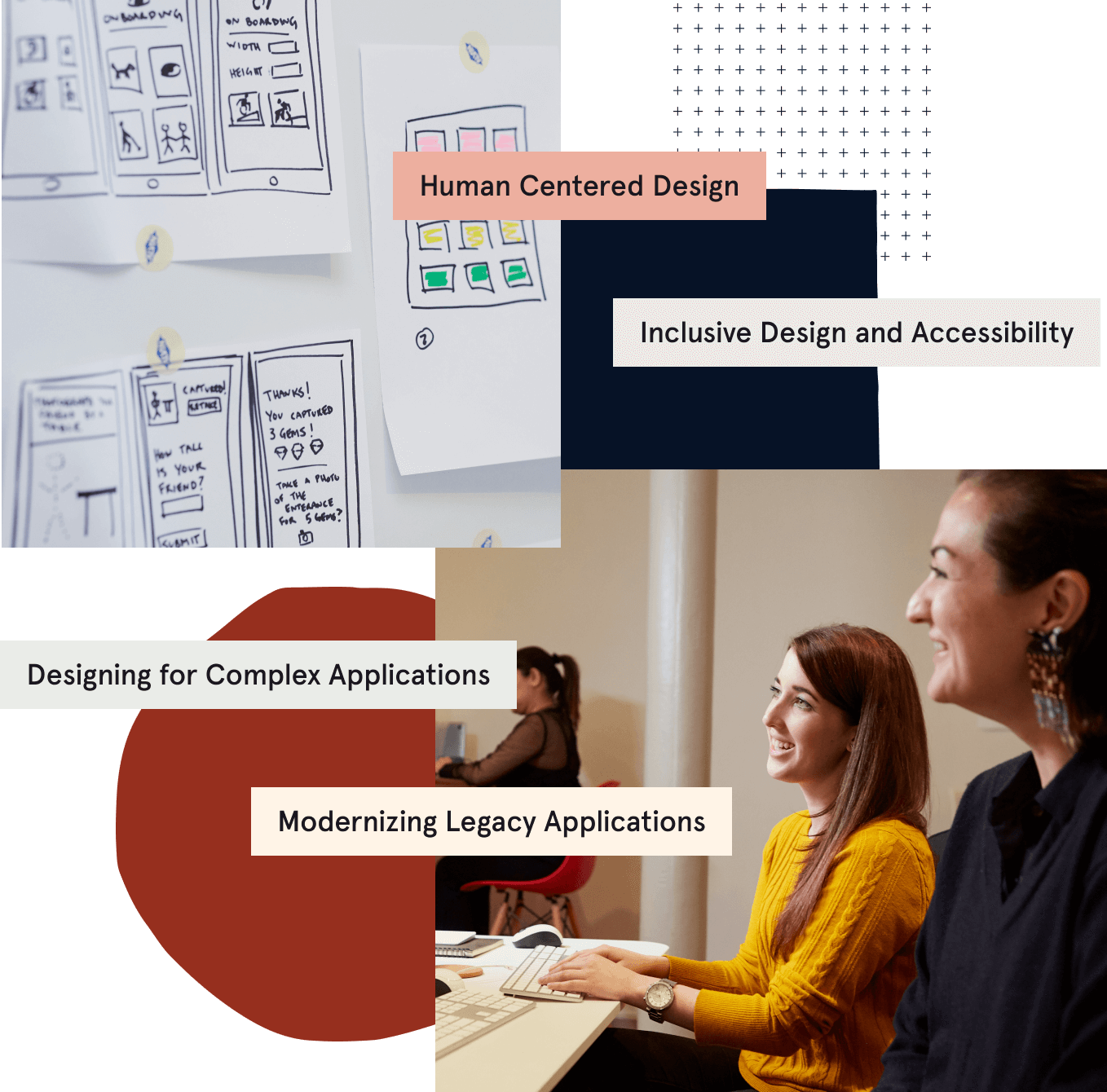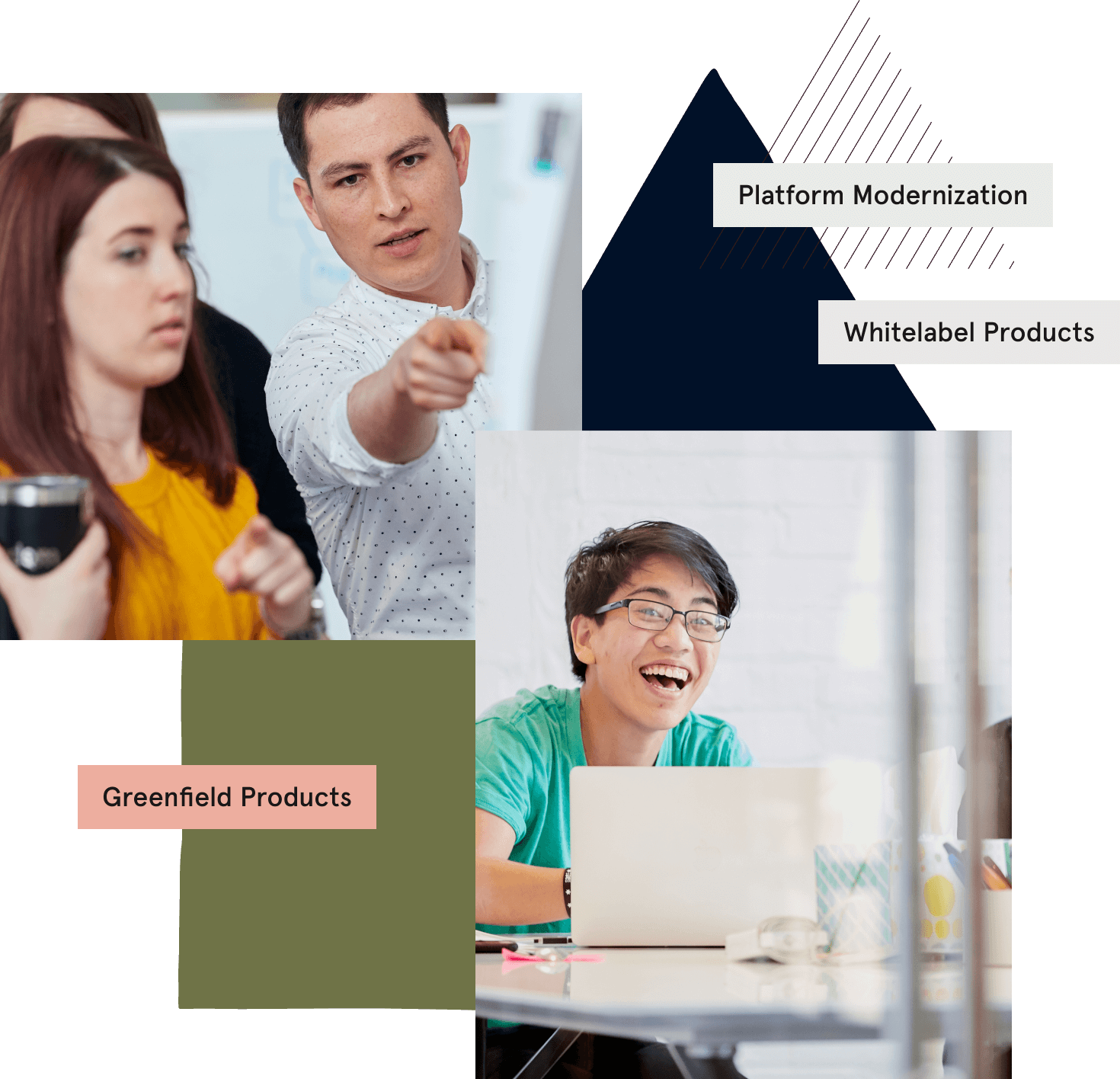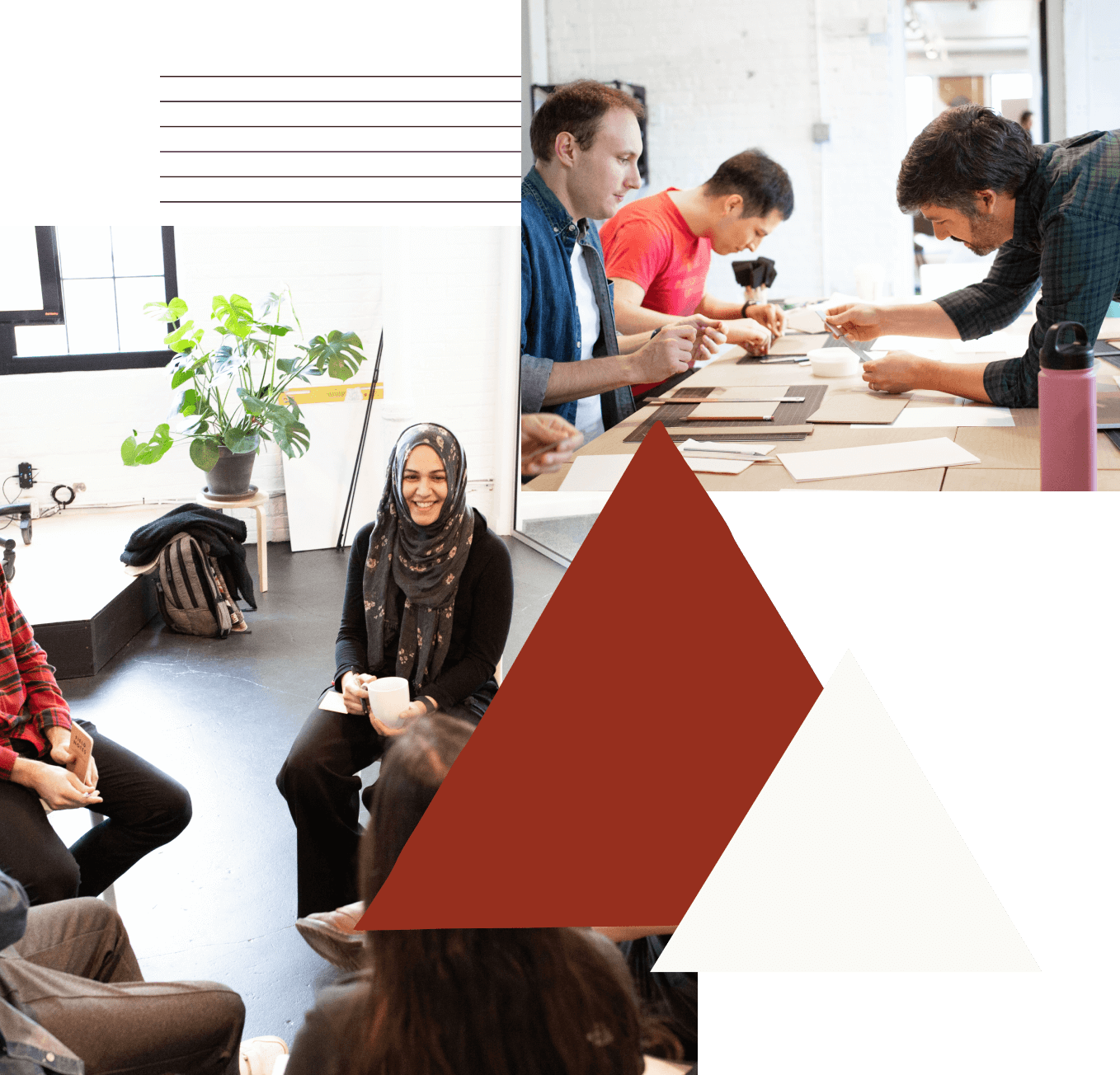Tandem’s software consultants come from many different backgrounds, and many of our engineers began their coding careers at a bootcamp program. In this three-part series, Jess and Caleb share their thoughts on the bootcamp experience, post-bootcamp paths, and Tandem’s apprenticeship program.
What are the differences between your bootcamp experience and the Tandem apprenticeship?
Jess: The major difference between my bootcamp experience and the Tandem apprenticeship was that the Tandem apprenticeship is designed to be individualized. Apprentices are offered jobs at Tandem as software engineers upon graduation, so they have a shared objective. However, each apprentice’s path is unique. Software consulting projects are so varied that there’s no way to standardize, and apprentices have diverse interests.
Tandem’s apprenticeship program focuses on hands-on experience, where we are encouraged to ask questions and build out practical experience with independent research. We’re also prompted to think about advanced concepts and long-term learning goals. Ultimately, Tandem asks apprentices to take responsibility for their own learning journeys.
Caleb: In bootcamp there was less emphasis on exploration. Also, the vibe at bootcamp was you either “hit the target” or you don’t: You learn the stack. You complete the assignments. You pass the assessments. You ace the mock interviews. You get the job! Then if you don’t, then you should try out another career. *womp womp*
With Tandem’s apprenticeship, learning from mistakes is encouraged. Though we have many Ruby enthusiasts here, there’s not one right language to learn! Your code is poked and prodded, because refactoring is often helpful for making code more maintainable for future developers.
A big difference is that the work you do during an apprenticeship has a greater purpose and doesn’t just belong to you. Not only do you learn the importance of refactoring, but also how to collaborate with design and product teams. Also, there’s an emphasis on accessibility, communication to both technical and non-technical people, and other consulting skills. There’s a lot more involved with an apprenticeship — plus Tandem’s apprenticeship is a paid position with benefits!
Jess: The apprentice salary is lower than the starting salary for level one software engineers at Tandem, but it’s competitive for SE1 salaries in Chicago overall. Plus, you have no billing requirement and one day per week is set aside for professional development, or learning on your own. The idea is that you’re earning less because you’re learning more. When apprentices start contributing at the same level as an SE1, they are promoted to a SE1 job title and salary.
How do your bootcamp projects compare to the projects you’ve worked on at Tandem?
Jess: At my bootcamp, our final projects were technically customized, but they all used the same frameworks to build the same basic functionality.
Caleb: My first four bootcamp projects were pretty standard, but I really enjoyed my last bootcamp project, because it was a team project that felt like what I imagined working in tech would feel like. By then, we also felt like we actually understood how to code, because we had covered frontend and backend by that point in the bootcamp.
My first project at Tandem was on a large client team; we had six people including me. I mostly worked on adding tests and new routes to the backend.
Jess: One thing that really differentiates the Tandem apprenticeship from bootcamp is working on client projects. Practice apps are valuable, but they’re nowhere near as complex or engaging as the real thing. Working on a real client project can be overwhelming, but it’s also fascinating. Plus, being a professional developer makes you feel like a professional developer.
Since Tandem is a consulting company, there’s a lot of variation between projects. Apprentices can pair on any part of the project. Most of the work we do is pairing, but we also sometimes take solo tickets. We also participate in PR reviews, backlog review, storybuilding, and retros. Every project I’ve worked on has given me new experience in pairing and collaboration.
My first project at Tandem was on a medium-size team, and I spent most of my time working on a couple of specific features.
Caleb: Yass lol “being a professional developer makes you feel like a professional developer”!
I remember while onboarding and getting my feet wet in my first client project, I felt like we were basically superheroes with keyboards! You couldn’t have convinced me otherwise, I thought it was so cool that the code I was working on in D.C. was helping people in San Diego, CA! No matter how small the contribution, I was excited to know a piece of what I was doing was making an impact.
Jess: Yes! And even if you’ve worked on challenging practice projects, software engineering in the real world is so much more complex and engaging. It’s like the difference between speaking Japanese in a classroom and wandering around Tokyo.
How has your learning progressed over the course of your apprenticeship?
Jess: A core objective of my bootcamp was “learning how to learn,” so I learned a lot of techniques for doing online research, reading documentation, and learning new concepts. That came in handy when I became a Tandem apprentice.
At Tandem, my technical skill development has been much broader and more eclectic. Our core stack is Rails and React, but we work in diverse languages and frameworks. Just during my apprenticeship, I’ve gotten exposure to Java, Node, Angular, Typescript, and GraphQL.
Most of my extra technical learning is built around my side project. That’s by design — I wanted to make sure I didn’t lose focus and wind up trying to learn everything at once, and I figured my side project would help me stick to a few actionable goals.
Tandem has a really generous learning budget, and the devs here are really inspiring. Engineers share technical tips and links to tutorials and online resources every day. We also have Dev Dish and Thursday Shares, regular meetings where people talk about their projects and things they’ve learned.
Caleb: I remember the excitement I felt going to Dev Dish for the first time, and feeling so inspired by others sharing what they were learning.
It wasn’t until my apprenticeship that I set actual technical goals for myself. I’m pretty goal-oriented, so I met with my manager and wrote out some goals based on the career paths.
What’s your favorite thing about the Tandem apprenticeship?
Jess: The level of support. Informally, everyone mentors the apprentices. We’re encouraged to ask questions in Slack channels, reach out to people for pairing and advice, and ask for feedback. However, each incoming apprentice is mentored by a Tandemite who was in the previous apprentice cohort. We meet with them for weekly check-ins, and they help onboard us. It’s a solid setup: it’s much easier to ask questions and talk through challenges with a mentor who’s so close to you in their career path.
Dominic Bales was my mentor, and I’ve really valued his help. He’s thoughtful, caring, and an amazing teacher. We paired together on my apprentice project and on multiple client projects. Right now, we’re building the application challenge for our next cohort of apprentices.
I’ve collaborated with all kinds of Tandem team members — designers, developers, and client partners — on my side project. It’s a pretty hefty full-scale app and I’m hoping to turn it into an actual product on the market. Having my team members’ support on this app has given me a solid foundation in Tandem’s best practices and has strengthened my connections with everyone.
Caleb: I really like the feeling of teamwork. Even though we’re remote, I think Tandem does a good job of making us feel connected and supported, as Jess mentioned.
Meo was my mentor, whose enthusiasm and care was so contagious! We had weekly check-ins where I came with a list of technical questions, either related to my side project or my Tandem client project. However, most of the time I was messaging them to ask about weird business/tech lingo, like “What’s timeboxing?” or “Should I know what Docker is?” Meo was always ready to help since they had been in my shoes before!
My curiosities were (and still are!) continuously supported. If I ask to join a meeting to simply be a fly on the wall, that’s cool. Or if I want to venture off and learn about Canvas with my professional development time, that’s cool as well! I really enjoyed learning about the consulting business, too. Our weekly Tandem Thursday meeting covers a variety of topics, but I liked learning about client engagement and how to be a better communicator.
What advice would you give to people thinking about applying to the apprenticeship?
Jess: Tandem’s software engineer apprenticeship is designed to be as open as possible, which is amazing. You are an employee and you have structured responsibilities, but you have a lot of freedom to seek out new interests and play with new ideas. Tandem also has a flexible schedule and team-oriented process, so you’ll have some freedom to customize your workday.
So if you’re thinking about applying to the apprenticeship, or even just looking for your first job, I’d do a little self-review. Think about what you need to learn and grow. What kinds of support do you need? What level of structure do you need? What positive learning experiences can you remember? What stresses you out? That kind of self-awareness will be a major advantage in the apprenticeship. It’s good practice for communicating with your team.
Caleb: I think if you made it this far in this blog post, you seem pretty interested, so you should probably apply (*wink wink*)!
As far as advice regarding the application/interview process, I’d recommend doing your homework. For example, I read so many blog posts on Tandem’s site to get a sense of the culture before applying. I also read through the values to make sure they resonated with me. I was pretty sure I could level up my skills at most places, but ultimately I chose Tandem because I knew the environment was right.









